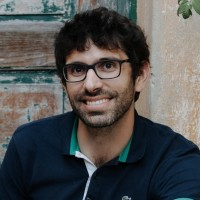Data Science for Social Good
I was a fellow in 2017 and a partner in 2019. Beyond the great experience of both fellowships, here I summarize the 2 projects we developed.
Improving incident response in the Netherlands [FELLOW 2017]
Rijkswaterstaat (RWS) is a division of the Ministry of Infrastructure and Environment and, among other things, ensures road safety in the Netherlands. They do this by operating a 24-hour service called Incident Management. Traffic management centers dispatch road inspectors to incident sites to secure them and restore normal conditions as quickly as possible to ensure optimal traffic flow.
There are approximately 260 road inspectors and 160 traffic managers in the Netherlands that handle 85,000 – 120,000 incidents on the highways each year. RWS plans the location of inspectors based on history, experience and capacity such that inspectors are as close as possible to the likely incident sites.
DSSG will help RWS by developing a policy for optimizing stationary and patrolling locations of inspectors on duty to minimize the time it takes them to reach an incident site. The goal is to optimize safety and traffic flow for road users. The model could also be relevant to other similar emergency response operations.
DataFest 2017
Increasing the efficiency of heart function assessment and diagnosis through echocardiography [PARTNER 2019]
Echocardiogram is the most routinely cardiac imaging test used in the diagnosis, management, and follow-up of patients with any suspected or known heart diseases. This imaging technique is particularly suited for the diagnosis of heart valve diseases and measurements of the size and function of the heart chambers. The main advantages of echocardiography above other imaging techniques are that it is fast (it takes between 10 and 20 minutes to do a full echocardiogram), cheap, not invasive, and portable, which makes it available even to patients that are not physically able to stay inside an MRI. However, the interpretation of these images has to be done by an expert cardiologist, which is a time consuming task and limits the number of echocardiograms that can be performed.
The goal of this project is to improve heart health diagnosis from echocardiogram images using Artificial Intelligence (AI) and other machine learning techniques to automate some of the underlying tasks.
